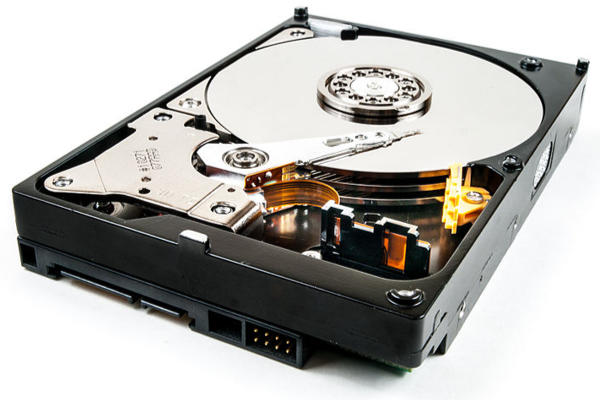
Practical Advice for Getting the Most Out of Your Technology for your Storage Space
Your computer likely has some sort of storage. Without it, very nothing would happen when you clicked the power button, therefore it must be present. Your storage includes not just the files and papers you own, but also the software and operating system for your machine.
There are other types of storage, though, and it can be useful to understand what they are and how they differ, whether you need new storage, replacement storage, or even while looking for a new laptop.
Usually, when we discuss storage in a computer, we are referring to the hard drive. The actual storing of data—all those ones and zeroes that your computer can comprehend—takes place on this device (in various forms).
Mechanical Hard Drives: Affordable but not modern
One such example is the LaCie portable hard drive is renowned for its resilience. If you had a hard drive during most of the history of personal computing, it was mechanical in design and employed quickly spinning discs inside a sturdy container.
You’re a million miles away from how a mechanical hard drive operates if you picture a vintage jukebox that alternated between vinyl records. Additionally, it features a reading head that can switch between disc layers to read specific regions of a disc that is considerably more solid than a standard vinyl LP.
Because mechanical drives are still, essentially, the most economical types in terms of cost per gigabyte, they still have a position in computers today. This is countered by the fact that they are slower than the other common type of storage for your computer since they have a mechanical moving component.
SSDs are incredibly quick and flexible.
The WD My Passport SSD Drive, which can carry data at breakneck speeds, serves as an illustration.
Solid State Drives, or SSDs for short, are the other memory type that competes with hard drives and other types of storage media.
SSDs don’t have any moving parts and, in essence, save all of their data electronically on silicon chips.
Because there is less of the same seek time waiting for a needle to hit precisely the appropriate area of a track, SSDs can be significantly faster than mechanical drives within a PC.
SSDs are also considerably more adaptable since silicon wafers may be shaped to accommodate both smaller and larger storage devices. It’s not just a matter of volume, but also of capacity. An external SSD will often be much smaller than an external mechanical hard disc of the same storage capacity when it comes to external drives.
So why aren’t all devices SSD?
SSDs are faster, quieter, and more energy-efficient than conventional hard drives, however due to a few issues, mechanical hard drives are still useful in some situations.
First off, despite recent price drops, SSDs are still somewhat expensive, thus individuals on a budget still frequently choose mechanical drives, especially for larger capacity drives.
The other aspect has to do with the fundamental components of an SSD. Most are rated for a certain number of reading and writing cycles, but crucially, it’s much more difficult to retrieve any data from an SSD when it fails. Because it’s not quite simple from a mechanical drive either, professional data recovery is very expensive, yet in many instances of an SSD crashing, it is virtually impossible.
What role do USB Flash drives play in this?
The SanDisk iXpand, for example, includes both a USB and Lightning interfaces.
The nearly ubiquitous “thumb drives” known as USB Flash drives also serve as storage. While they mostly employ the same technologies as SSDs, they have less complex control panels and often operate at significantly slower rates.
A USB Flash drive is a terrific alternative if you’re looking for an easy and affordable solution to transmit files because they’re incredibly affordable. On the other hand, they are less robustly constructed than the majority of external SSDs or mechanical hard drives, making it more difficult to recover data in the event of a catastrophe.
My hard drive is so slow; why is that?
There are a few causes of slower-than-expected hard drive performance. Since mechanical drives are the slowest of the species, they will be a little less responsive if you are utilising one.
The interface you choose also has a significant impact if you’re using an external hard disc. While the most common USB connector is a rectangular USB A type plug and is the norm in this case, the speed of the many USB ports on your computer will also have an impact on your overall speed. If you connect a lightning-fast SSD to a USB 2.0 connection, the speed will be substantially slower than if it is USB 3 or higher. Look for ports that have a little blue strip edge connector inside or you could take a look at your computer’s specifications and skip utilising ports that are slow.
What you’re copying to or from an external drive matters as well. Even if the sum of all the smaller files is less data, computers can handle a single larger file more quickly than many smaller ones!
Consider shifting one large box across a room: You might move slowly, but it all happens at once, so the rate of movement is rather regular. That is our lone substantial file. It feels like there are hundreds of little boxes and each one needs to be picked up individually while transferring thousands of files from a directory. Simpler to transport as singles, but requires numerous trips across the room before completion. The corresponding quality, age, and condition also make a difference.
As always, you may schedule an appointment with a helpful CaliPhonia specialist to get assistance if you’re having problems with your PC’s performance, particularly its hard drive!
